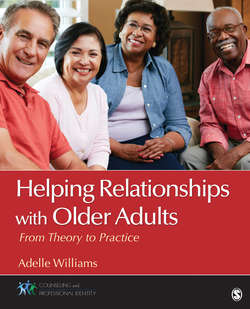Читать книгу Helping Relationships With Older Adults - Adelle M. Williams - Страница 44
На сайте Литреса книга снята с продажи.
Intelligence
ОглавлениеIntelligence, as measured by the Wechsler Adult Intelligence Scale, declines with age, but the biggest, earliest losses were reported in flawed studies. Cohort differences undermined these cross-sectional studies, causing selection bias regarding education, gender, race, occupation, and income. However, measuring specific intellectual functions has become typical. Crystallized intelligence (learning and experience) remains stable or improves with age until the late 70s or beyond, especially in those who remain healthy and engaged in cognitively demanding activities. Fluid intelligence declines rapidly after adolescence. Perceptual motor skills (timed tasks) decline with age (Besdine & Wu, 2008).
Individuals may experience a wide array of physical and cognitive shifts as they go through the aging process. Such changes can include issues with vision to problems with cardiovascular or integumentary systems to losses in episodic memory to attention deficiencies. The degrees to which these changes occur differ from person to person. Older adults’ health and well-being are dependent on the professionals who are available to help them through these new stages of life. In particular, counselors should acknowledge any diminished capacities that a client is experiencing and provide him or her support in those areas, while also reinforcing the person’s strengths and emphasizing his or her ability to lead a happy life.
